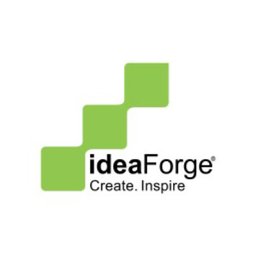Senior Engineer Mechanical Design
Year MH, IN, India
Job Description
R&D - Mech
Navi Mumbai (On-Site)
Mid-Senior
COMPANY PROFILE:
ideaForge is the leader in industrial and surveillance UAV manufacturing in India with more than 50% market share. The organization was established in 2007 by IIT-Bombay alumni and is based out of Navi Mumbai, Maharashtra. ideaForge co-designed India's first Surveillance quadrotor UAV, NETRA with the Defense Research & Development Organization (DRDO) and is also responsible for engineering the then world's lightest Autopilot.
ideaForge develops completely indigenous technology for Unmanned Aerial Systems (UAS). Our organization is the pioneer in the UAS segment in India and has multiple IPs to its credit. Our in-house R&D, design, manufacturing, software, services and training operations give us the flexibility to customize products for an array of requirements. We are continually innovating and experimenting to transform our aerial platforms to offer greater performance, higher reliability and autonomy.
At ideaForge, our principle behind everything we design, and build is creating an impact - making the world a better and safer place. With this principle as our cornerstone, we have developed UAVs with unmatched global specifications. With this philosophy, we have consistently helped Indian Defense, Paramilitary & Police forces ensure the safety of our citizens and ultimately save precious lives.
POSITION OVERVIEW:
We are seeking a Senior Engineer - Mechanical Design to join our dynamic and interdisciplinary UAV engineering team. The ideal candidate will be responsible for the mechanical design and development of Hybrid UAV systems and subsystems, with an emphasis on design excellence, manufacturability, integration readiness, and cross-functional collaboration. The candidate should bring deep experience in CAD design, tooling & assembly definition (TAD), PLM integration, material-process compatibility, and should be capable of taking end-to-end mechanical ownership from design to delivery.JOB DESCRIPTION
1. CAD-Based Mechanical Design & Ownership
Lead the mechanical design of Hybrid UAV subsystems and payload interfaces using advanced parametric CAD tools (preferably PTC Creo). Develop and maintain complex CAD trees, system layouts, and 3D model integrity across revisions. Drive modular and scalable design practices are in line with product architecture.
2. TAD (Tooling & Assembly Definition)
Must be proficient in TAD principles with hands-on experience in tooling and assembly strategies. Prepare assembly BOMs, jigs and fixture interfaces, and support design-to-assembly planning. Contribute to design improvements based on ease of assembly, maintainability, and ergonomics.
3. PLM Integration
Experienced in Product Lifecycle Management (PLM) systems for version control, workflows, and digital thread management. Familiarity with Windchill PLM or equivalent for part structures, release cycles, and change management.
4. Structural Design & Collaboration
Sound understanding of structural analysis fundamentals (loads, boundary conditions, safety factors, fastener design, etc.). Ability to interpret FEA results, collaborate with analysis teams, and optimize design based on structural feedback.
5. Material Engineering & Manufacturability
Strong knowledge of materials (metals, polymers, composites) with a clear understanding of process-specific constraints. Evaluate designs for manufacturability, cost efficiency, and reliability using DFM, DFX, and material selection tools. Prior experience working with high-performance materials, injection molding, and machining processes is advantageous.
6. Additive Manufacturing & 3D Printing
Well-versed in 3D printing techniques (FDM, SLA, SLS, MJF, DMLS, etc.). Ability to select suitable printer types, grain structures, material properties, and post-processing requirements based on the use-case.
7. Cross-Functional Collaboration
Work closely with systems engineering, integration, sourcing, testing, and manufacturing teams. Take ownership of the design deliverables, resolve cross-domain design issues, and ensure on-time maturity of the mechanical stack. Support V&V (Validation & Verification) activities and ensure that mechanical designs are compliant with technical specs and regulatory needs.
8. Root Cause Analysis
Should be capable to understand physical behavior, correlate with design definition and derive root causes in collaboration with CFT.
SKILLS & QUALIFICATIONS:
Bachelor's or master's degree in mechanical engineering, Aerospace Engineering, or a related discipline. 8+ years of experience in mechanical product design, preferably in aerospace, UAVs, or robotics. Proficiency in 3D CAD modeling (preferably Creo), TAD, and GD&T. Experience in PLM/PDM platforms, ideally Windchill. Exposure to FEA results interpretation and collaborative optimization with analysts. Knowledge of DFX, DFM, and high-performance material-process pairing. Hands-on experience with 3D printing tools and decision-making for rapid prototyping vs. end-use applications. Strong documentation and presentation skills.
DESIRED BEHAVIOURAL VALUES:
Commitment to common purpose and goals Seating respect on the table Displaying Integrity and Ethics Taking Initiative and ownership with Accountabilities Being Passionate about making a difference Maintaining and managing interpersonal harmonious relationships
Skills
Mechanical design
Creo
Windchill
DFX
Additive ManufacturingRCA
Structural Analysis
Leadership
Beware of fraud agents! do not pay money to get a job
MNCJobsIndia.com will not be responsible for any payment made to a third-party. All Terms of Use are applicable.
Job Detail
-
Job IdJD4008633
-
IndustryNot mentioned
-
Total Positions1
-
Job Type:Full Time
-
Salary:Not mentioned
-
Employment StatusPermanent
-
Job LocationMH, IN, India
-
EducationNot mentioned
-
ExperienceYear
